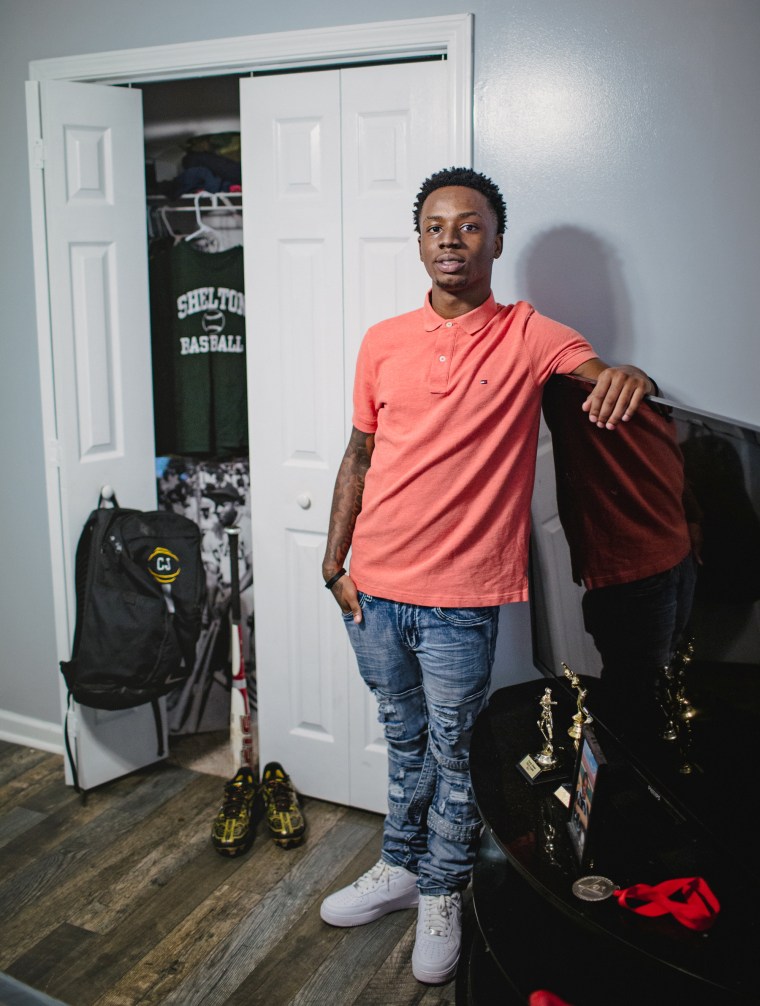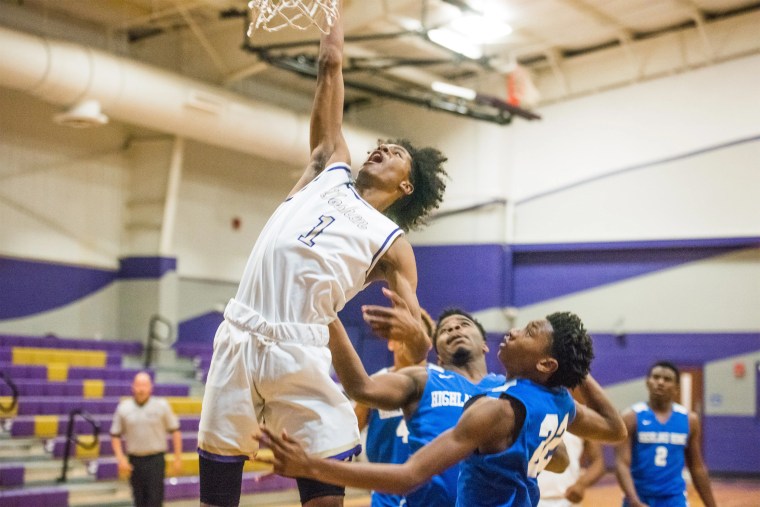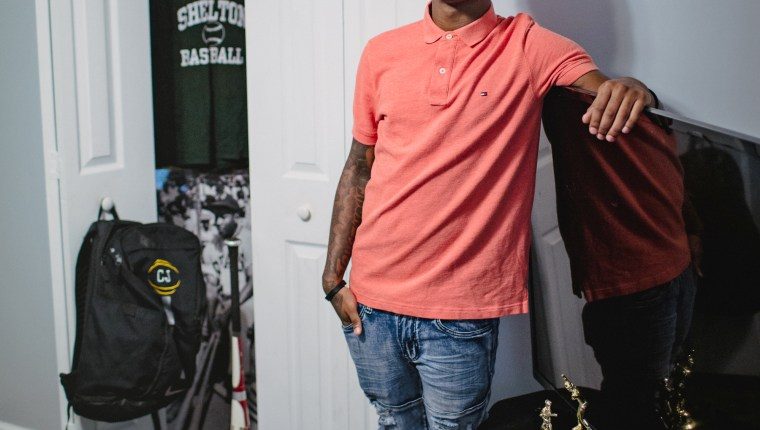At the hearing in January, according to Jones and his father, the school denied him access to the investigative report that the district said proved his guilt and declined to show him security video he believes would have cleared him.
The school ordered Jones to spend 45 school days in an alternative school — a fate he was so determined to avoid that he transferred to an online program.
“They betrayed me,” Jones said of school administrators whose punishment meant he missed the baseball season he hoped would help him earn a college scholarship.
When his family hired a lawyer and tried to appeal, Tuscaloosa City Schools refused to allow the lawyer into a meeting with school officials, making her sit in the hallway.
The district declined to comment on Jones’ account, but a spokeswoman said in a statement that the district is “committed to following established policies and procedures” to address disciplinary issues. She added that the district cannot always share evidence with students due to privacy concerns.
Rachel Blume, Jones’ lawyer, said the Tuscaloosa district has barred her from attending client disciplinary meetings on four occasions.
“They don’t want to be challenged in their decision-making,” Blume said of districts that bar attorneys. “They’re making up their own rules and calling it due process when it’s not.”

‘It just ruined him’
As they started their senior year at Goshen High School in Pike County, Alabama, Dakarai Pelton and RaQuan Martin were both star athletes on the varsity football and basketball teams. Both had good grades and clean discipline records. Both said they’d met with college scouts and believed they were in position to win athletic scholarships.
That changed on Nov. 22, 2019, the day that Pelton and Martin — best friends — skipped class and followed a friend to her car because she said she had something to show them. Both boys say they got in the girl’s car, saw that she had drug paraphernalia, which they described as a “bong,” then quickly returned to the school.
Both boys insist that they did not smoke marijuana that day. Martin’s parents gave him a home drug test that evening that confirmed this, his mother told the district’s discipline council. Pelton’s drug test — given a couple weeks later by a doctor — also showed no evidence of marijuana use, his mother said.
The Pike County school district allows students to bring lawyers to their discipline hearings, but neither student did so. Pelton’s mother, Shatarra Pelton, said the school told her a lawyer wasn’t necessary. “They said no. It was just a review of what he was being accused of,” she recalled.
Had Pelton and Martin lived 60 miles to the east, on the other side of the Georgia line, things might have gone differently, said Michael Tafelski, a lawyer from the Southern Poverty Law Center, a civil rights organization that represented Pelton and Martin when they later sued their district.

If the boys had been in Georgia, their district would have been required by law to share evidence before their hearings, said Tafelski, who has represented students in both states. The boys would have known that other students in the car that day had admitted to smoking weed. They would have known that the district had video evidence that showed what looked like suspicious behavior, Tafelski said, including that Pelton and Martin had exited the building through separate doors to avoid drawing attention to the fact that they were skipping class.
But, in Alabama, all of this took them by surprise.
Five minutes into Martin’s hearing, just after he professed his innocence in his opening statement, he got pushback from Mark Head, the administrator chairing the three-member Superintendent’s Discipline Council that day.
“You know that doesn’t match the other stories we’ve heard. I’m just saying,” Head said, according to audio of the hearing.
Another council member, district administrator Donnella Carter, grilled Martin about why he was so “curious” about the object in his friend’s car. “It’s going to behoove you not to be so curious in the future, you hear?” she said. She then asked him four times whether he had smoked marijuana, stressing that “we already know that smoking was going on in the car,” and seeming to doubt his repeated assertions that he hadn’t smoked.
“You’re certain that’s the truth?” she asked. “Because it’s not going to help you to come before us and be dishonest.”
During Martin’s hearing, the school principal told the council that students were in the car for five or six minutes. The council then watched the security video, which showed Pelton and Martin leaving the car before the others. The video also showed the pair dousing each other with body spray when they returned to the building — another thing the council thought was suspicious. Both boys said they used body spray because the girl’s car smelled bad. “It stank in there,” Martin told the council.
Pelton’s hearing went much the same way except that technical issues prevented him from seeing the video. Instead, Head described it. “We can’t see what happens in the car, but we know they went to the car,” he said.
When Pelton denied smoking marijuana, Carter asked if he had ever used the drug. He admitted that he had, which led council members to take turns lecturing him on the negative consequences of marijuana use.
“It’s considered a gateway drug,” Carter told him.
Had these hearings occurred in Georgia, Martin and Pelton might have been able to question the students whose admissions had implicated the whole group, and the council would not have been allowed to rely on evidence presented in hearings held when Martin and Pelton weren’t present, Tafelski said.
If Pelton had legal counsel at his hearing, his lawyer would likely have objected to the question about past marijuana use, stopping him from answering, Tafelski said. “We would have demanded that the school prove its case, which means holding them to the rules that he was accused of violating,” instead of upbraiding him for skipping class and smoking weed in the past.
The council ultimately stopped short of expelling Pelton and Martin but ordered them to finish high school at the district’s alternative school, a small building surrounded by barbed wire.
Their only recourse was to plead with the school board, which eventually agreed to let them return to class after they submitted more negative drug tests. But by then, they had missed three months of school and the basketball season. The college scouts disappeared.
Both students earned their diplomas, but neither has gone to college. They’re currently working as delivery drivers.
“It just ruined him,” Shatarra Pelton said of her son, now 21. The formerly outgoing jock “stopped talking, stopped hanging out. He spiraled.”
Pelton and Martin’s lawsuit against the district ended with an agreement to clear their records.
Pike County Schools Superintendent Mark Bazzell said that he can’t discuss matters related to specific students but wrote in an email that the district relies on an impartial tribunal to consider the facts in suspension and expulsion cases.
Bazzell has chaired many such panels, he wrote: “I always felt our administrators reviewed cases in a thoughtful manner and did their very best to balance the rights of students and the factual evidence in a way that would lead to a disposition that would result in the likelihood that the offense would not reoccur while also considering the need for the District to maintain good order and discipline in its schools.”
Both Pelton and Martin declined to be interviewed, saying they wanted to move on, but they gave their mothers permission to share their stories.
“It changed him,” Tasha Martin said of her son. “If he sees some kids that he went to school with on the internet, playing football, he’s like, ‘That could have been me. I was going to do this. They took it away from me.’”
‘A last resort’
State legislatures have been grappling with student punishment since at least 1994, when Congress passed the Gun-Free Schools Act, kicking off the zero-tolerance era by mandating expulsions for students with guns. That led to harsh laws across the country, punishing students for fighting, drugs and harder-to-define offenses like defiance.
Some states and districts began to soften those policies in the past decade, especially after the Obama administration flagged them as discriminatory and harmful.
But this year, as schools reported a spike in behavioral issues in the wake of the pandemic, states with both Democratic and Republican governors have taken steps to crack down. Kentucky made it easier to remove chronically disruptive students. West Virginia gave teachers more power to exclude disobedient children, while Nevada made it easier to expel students as young as kindergarten.
Source: | This article originally belongs to Nbcnews.com









